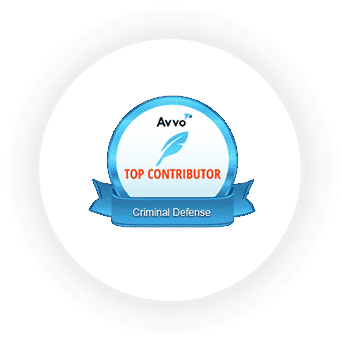
Texas Criminal Laws
New Texas Criminal Laws In 2017 From the 85TH Legislature
The 85th Texas Legislature created a variety of new criminal offenses and made important changes to other criminal law topic areas as well. Whether you are a criminal law practitioner or just want to know what the new laws are that apply to all of us Texans, you’ll want to take a few minutes to go over this update.
Some important new offenses from the 85th Legislature
- Electronic Data Tampering
- Unlawful Decryption
- Electronic Access Interference
- Texting While Driving
- Unregulated Custody Transfer of adopted child
- Engaging in organized election fraud activity
- Possession or promotion of lewd visual material depicting child
- Sexual coercion
- Failure to comply with immigration detainer requests
- bestiality
A disclaimer: What is contained below is just the summaries. They are not comprehensive analyses of the new laws. If you’re interested in learning more, you can look at the original bill.
Contact us today to get started on your case with a free consultation.
The biggest new update is likely H.B. 3016, which will make possible to get certain DWIs nondisclosed. Under the bill it may also be possible to get certain convictions nondisclosed no matter when they occurred.
Cybercrimes
H.B. 9 entitled the “Texas Cybercrime Act,” adds three new offenses to the Penal Code and makes some changes to definitions in Chapter 33 of the Penal Code. The offenses created are: Electronic Access Interference, Electronic Data Tampering and Unlawful Decryption. These laws target “ransomware” and other malware as well as DDOS (distributed denial of service) attacks. The bill defines “ransomware” for purposes of prosecution under the new laws. These new laws are discussed in detail on each of their respective pages.
Expanding the Sex Offender List & Update to Various Sex Crimes
H.B. 29 amended the list of convictions requiring registration as a sex offender in Texas to include a subsection (c-1)(3) Prostitution offense and sex-related Continuous Trafficking of Persons crimes. The bill also made changes similar to H.B. 1808 (see below) with respect to awareness of the age of a child for statutory rape offenses. It also significantly changed the definition of the offense of Prostitution and added a definition of “fee” for the purposes of the Prostitution offense. The penalty for Promotion of Prostitution was increased to a default state jail felony, enhanceable to a third degree felony. The penalty for Aggravated Promotion of Prostitution was increased to a default second degree felony.
Texting While Driving
H.B. 62, entitled the Alex Brown Memorial Act amends portions of the Transportation Code, most notably creating a new statewide texting-while-driving ban. This new offense is called Use of Portable Wireless Communication Device for Electronic Messaging, and it will be codified at Sec. 545.4251 of the Transportation Code.1 The offense is a Class C misdemeanor with a maximum $99 fine ($200 for repeat offenders),2 unless the state’s attorneys convince a jury that you caused the death or serious bodily injury of another person, in which case it is a Class A misdemeanor.3 The law has many affirmative defenses and exceptions.4 The new law takes effect September 1, 2017.5
Interestingly, H.B. 62 also adds the new texting-while-driving law to the list of non-arrestable offenses.
Class C Expunction Update
H.B. 557 deals with expunctions, updating Texas Code of Criminal Procedure Chapter 55. It makes some much-appreciated language changes to reflect that people who are acquitted are no longer defendants. It also clarifies that justice court and municipal judges may only expunge records relating to fine-only offenses in their own geographical jurisdiction. In true legislative fashion, there is also a fee increase to these Class C misdemeanor expunctions.
Expansion of False Police Insignia in the offense of Misrepresentation of Property
H.B. 683 amended the Misrepresentation of Property offense. The primary effect was the addition of vehicles to the types of property covered by this offense. It also added to the list of property covered by the offense any item that contains the word “police,” “sheriff,” “constable,” or “trooper.”
Prohibited Stem Cell Purchase
H.B. 810 deals with stem cell research. For the purposes of our criminal law analysis, it creates a criminal offense called Prohibition on Purchase and Sale of Adult Stem Cells for Certain Investigational Treatments. The law is basically what it sounds like, and thus means that if you’re trying to acquire stem cells you can’t pay for them.
Unregulated Custody Transfer of Adopted Child
H.B. 834 creates laws regulating the custody transfer of an adopted child and creates one new criminal offense in the Penal Code called Unregulated Custody Transfer of Adopted Child.
Improvised Explosive Devices – now illegal
H.B. 913 added “improvised explosive devices” to the list of prohibited weapons in the Section 46.05 Penal Code offense of Prohibited Weapons. The bill also added a definition for improvised explosive device and made additional changes to the Prohibited Weapons statute.
Fake Ambulances now illegal, too
H.B. 1249 creates a new Class C misdemeanor offense called Use of Certain External Motor Vehicle Markings or Features Prohibited; Criminal Offense, and it prohibits operating a vehicle that looks like an emergency medical services vehicle like an ambulance (unless of course the vehicle really is an emergency medical vehicle). This offense is a Class C misdemeanor and will be codified at Section 773.017 of the Health and Safety Code.
Increased Penalties for Damaging Dams
H.B. 1257 increases the punishment for Criminal Mischief when the property damaged is a “property used for flood control purposes or a dam.”6 Now, if the damaged property falls into this category, the minimum penalty for a Criminal Mischief conviction is a state jail felony. This law also takes effect September 1, 2017.7
Operating Drones too Closely to Stadiums, Prisons and Jails – now illegal
H.B. 1424 prohibits drones from flying close to correctional facilities and sports venues. The bill amended the Government Code to add correctional facilities and detention facilities to the rules already applicable to critical infrastructure facilities in Section 423.0045(b). The bill also created a new offense called Offense: Operation of Unmanned Aircraft over Sports Venue, to be codified at Section 423.0046, Government Code. The new law defines sports venues as venues that have a seating capacity of at least 30,000 and are primarily used for one or more professional or amateur sports or athletic events.8 Just like the rules applicable to critical infrastructure facilities, the regulation prohibits the flying of drones lower than 400 feet above the sports venues.9 This new law is punished as a Class B misdemeanor, but there is a repeat-offender enhancement to Class A misdemeanor.10 This law also takes effect September 1, 2017.11
Critical Infrastructure Facilities – list expanded
H.B. 1643 further modifies drone aircraft laws by expanding the list of places defined as critical infrastructure facilities.12 This law also takes effect September 1, 2017.13
Enhanced Penalties for Participating in Two Political Parties & Engaging in Organized Election Fraud Activity
H.B. 1735 makes multiple changes to the Texas Election Code with regard to election officers. The penalties for the offense of Unlawful Participation in Party Affairs, found in Section 162.014 of the Texas Election Code, have been increased under certain circumstances. While any violation of this law was previously a Class C misdemeanor, now there are two circumstances in which a violation can be a felony.
The bill also created a new offense called Engaging in Organized Election Fraud Activity. This law makes it illegal to conspire or commit one or more offenses under Titles 1 through 7 of the Election Code.
Sexual Assault and Statutory Rape – language updates regarding awareness of age of victim and definition of consent
H.B. 1808 makes changes to the Trafficking of Persons offense, the Continuous Sexual Abuse of Young Child or Children offense and the Indecency with a Child offense in an attempt to clarify that someone who engages in the conduct constituting certain trafficking and sexual offenses commits an offense regardless of whether the actor knows the age of the accuser at the time of the offense. Similar changes were made to the offenses of Prostitution, Promotion of Prostitution, Aggravated Promotion of Prostitution, Compelling Prostitution, Child Sexual Assault and Employment Harmful to Children. This bill also adds the offense of Sexual Coercion, just like H.B. 2552, and adds coercion-like language to the definition of “without consent” for purposes of the Sexual Assault law. The law stopped short of requiring affirmative consent, towards which there was a push at the beginning of the session.
Possession or Promotion of Lewd Visual Material Depicting Child
H.B. 1810 creates a new offense called Possession or Promotion of Lewd Visual Material Depicting Child. This offense resembles the federal offense of Obscene visual representations of the sexual abuse of children, but it also resembles Texas’s own law of Possession of Child Pornography.
Silencers are Not Prohibited Weapons
H.B. 1819 amends the Penal Code 46.05 Prohibited Weapons offense by clarifying that firearm silencers are not prohibited weapons under the statute so long as they are handled in compliance with federal law.14 H.B. 913 also made changes to the Prohibited Weapons offense.
Knives
H.B. 1935 makes a host of changes to the regulation of knives under Chapter 46 of the Penal Code. The concept of an “illegal knife” has been scrapped. Instead, there is a new term called a location-restricted knife, defined in the new Penal Code Section 46.01 as any knife with a blade over 5.5 inches. While “illegal knives” included throwing knives, swords, spears and daggers, the new location-restricted knife definition does away with these descriptions and makes it a simple question of whether the blade is over 5.5 inches. The Unlawful Carrying Weapons offense is updated by removing all knives from regulation under that existing law, but it creates a new subsection (a-4) of the UCW offense that applies only to minors carrying location-restricted knives.
H.B. 1935 also updated the Places Weapons Prohibited offense by updating the law to cover location-restricted knives instead of illegal knives and by creating an entirely new subsection (a-1) that prohibits the carrying of location-restricted knives in various location.
Expanding “Coercion” for Human Trafficking Prosecutions
H.B. 2529 expands coercion for purposes of Section 20A.02, Penal Code (Trafficking of Persons), to include the use of threats related to destroying or withholding government records and identification documents.15
Sexual Coercion
H.B. 2552 creates a new criminal offense called Sexual Coercion in addition to many new civil laws that are supposedly designed to make it easier to attack massage parlors because the legislature believes massage parlors harbor sex traffickers.
H.B. 2552 also adds a new way for an Assault conviction to be enhanced to a third degree felony. If the state’s attorney can prove to a jury that you assaulted a pregnant individual to force the individual to have an abortion, then an Assault conviction under Subsection (a)(1) is enhanced to a third degree felony.16
Controlled Substance
H.B. 2671 added several new drugs to the list of controlled substances. Those include adding Phenazepam, U-47700, AH-7921, ADB-FUBINACA, AMB-FUBINACA and MDMB-CHMICA to Penalty Group 1.17 Carisoprodol, Etizolam and Tramadol were added to the list of Penalty Group 3 offenses.18 More importantly, the bill closed the “Adderall Loophole” that prevented the conviction of Possession and Manufacture/Delivery of Penalty Group 2 drugs that were approved by the FDA by repealing Section 481.103(d), Health and Safety Code.19 This new law takes effect September 1, 2017.20
Enhanced Penalties in Criminal Mischief Prosecutions for Killing Livestock
H.B. 2817 creates an additional enhancement in the Criminal Mischief law for using a weapon to “cause the death of one or more head of cattle or bison or one or more horses.” This is now by default a felony of the third degree, and the bill also makes an exception for you if you kill the livestock in the course of your military or agricultural duties.21
Police Hate Crime Laws
H.B. 2908 enacts the new police hate crime laws, adding peace officers and judges as a protected class by creating new enhancements for Unlawful Restraint, Assault, Terroristic Threat and Intoxication Assault. Now, when a peace officer is the alleged victim of one of these offenses, the state’s attorneys can add an enhancement to the charging instrument that, if proved, would substantially increase the penalty upon conviction.
Nondisclosure Laws
H.B. 3016 made substantial and important changes to the Texas Nondisclosure laws. Probably the biggest change was made with respect to Nondisclosures of DWI cases. Before the passage of this law, there was no way to seal a DWI conviction, but now this is a possibility. The 84th Legislature introduced Nondisclosures for certain offenses even after conviction (where previously it was only available to people who had received deferred adjudication), but DWIs were specifically exempted. However, now there is a mechanism for getting certain (but not all) DWI convictions nondisclosed. Another important change extends the eligibility for orders of nondisclosure under the new eligibility categories created in 2015 to offenses regardless of the date of the offense, including dates prior to 2015.
Expansion of Injury to a Child
H.B. 3019 expanded the group of people to whom the offense of Injury to a Child, Elderly Individual or Disabled Individual applies. The law now covers people who operate boarding home facilities,22 and the definition of disabled individuals now covers people who have a mental illness, as defined by Section 571.003, Health and Safety Code.23 The bill also swapped language referring to people with “mental retardation” for people with “intellectual or developmental disabilities.”
Magistrate Process Update
H.B. 3165 makes a few changes to pre-trial procedures, mostly having to do with allowing video conferencing for magistrate hearings. The most important takeaway here is that defense counsel can request, and obtain after payment of a fee, a copy of the recording made (if one was made).24 The fee can be waived for indigent people. People are also now required to post a personal recognizance bond if they “dry writ.”25
Sanctuary City Laws
S.B. 4 is the most controversial new law, having already received a tremendous amount of national press and is facing multiple lawsuits. This bill creates an offense called Failure to Comply with Immigration Detainer Request, to be codified at Penal Code 39.07.
In addition, S.B. 4 allows a peace officer to “inquire as to the nationality or immigration status of a victim of or witness to the offense only if the officer determines that the inquiry is necessary to: (1) investigate the offense; or (2) provide the victim or witness with information about federal visas designed to protect individuals providing assistance to law enforcement.”26The constitutionality of this ability for officers to demand to see paperwork proving citizenship has been questioned in a major pending federal lawsuit.
Another major change implemented by S.B. 4 include a rule establishing that a surety may not be relieved of a bond in the event that someone is in federal custody on an immigration hold.27 This means that bondsmen will likely not post bonds for non-citizens without payment of the entire bond in full up front in cash, and they will likely require an additional fee.
Law enforcement agencies are now required to comply with federal immigration detainer requests at the expense of the local law enforcement agency.28 Judges also are now required, when sentencing someone to a secure correctional facility who has an immigration detainer request, “at the time of pronouncement of a sentence of confinement, [to] issue an order requiring the secure correctional facility in which the defendant is to be confined and all appropriate government officers, including a sheriff, a warden, or members of the Board of Pardons and Paroles, as appropriate, to require the defendant to serve in federal custody the final portion of the defendant’s sentence, not to exceed a period of seven days, following the facility’s or officer’s determination that the change in the place of confinement will facilitate the seamless transfer of the defendant into federal custody.”29
Expanded Laws related to Improper Relationship Between Educator and Student
S.B. 7 expands the coverage of the offense of Improper Relationship Between Educator and Student. In addition, it creates a host of other laws (mostly in the Education Code) related to reducing the occurrence of sexual relationships between students and teachers, including penalties related to retirement benefits for teachers. A person convicted of offenses including Continuous Sexual Abuse of Young Child or Children, Improper Relationship Between Educator and Student and Sexual Assault will have their retirement benefits suspended,30 and a trial judge is required to make affirmative findings regarding this.31 A teaching certificate can now also be revoked upon receiving deferred adjudication for certain offenses.32


CLIENT REVIEWS
Opinions From Those Who Matter Most
-
"Easy to work with, understanding, and supportive."Work with him, he will work hard for you!- Greg B.
-
"He's a blessing."Dismissed my case.- Sade R.
-
"If you're in trouble, I would definitely recommend hiring Mr. Stornello."I found him to be very honest and hard-working, he stood up for me when nobody else would.- Antasia M.
-
"Thanks again to him and his persistence."I had two very serious cases I was on probation for and got them terminated early thanks to Mr. Stornello’s hard work.- Joshua F.
-
"I highly recommend Stornello Law firm."Very professional, attentive, and they will fight for you!- Jackie T.
-
"Thank you to Mr. Stornello, you are a credit to the legal community."Mr. Stornello was kind enough to share legal insight and experience to assist me, a fellow attorney.- Caroline O.
-
"Thanks for everything."I honestly recommend it.- Erick P.
-
"He was very professional and answered any questions that I had."He was very professional and answered any questions that I had.- S.K.







